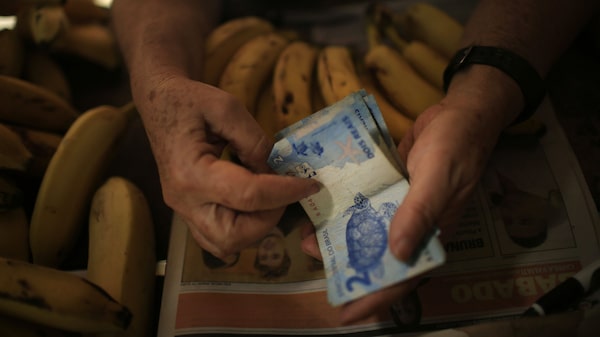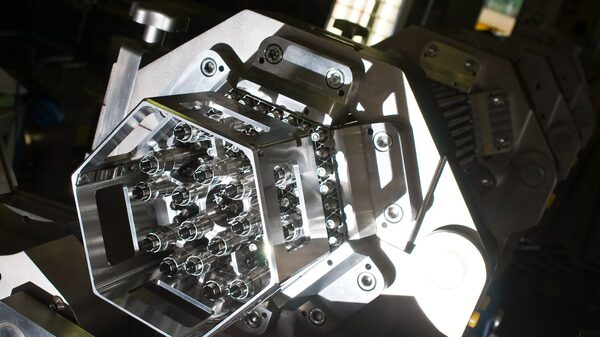Buenos Aires — The Argentine government is once again close to permitting the entry of undeclared US dollars into the economy, if two articles contained in the 2023 budget are approved.
The draft bill sent by the government to Congress includes proposals to allow funds to be brought in, without those doing so infringing anti-money-laundering laws, and is part of a law enacted in August to incentivize investment, construction and production in the country.
So far, the proposed modification has been well received by sectors of the economy that had been demanding such permissions, and which will benefit from it, but there is also opposition to the proposal, as it is seen as allowing money laundering, and which would be detrimental to the country’s institutions and possibly exacerbate inflation.
Under the proposals, funds entering the country will have to be deposited in a ‘special deposit and cancellation account’, the terms of which will be determined by the country’s public revenues authority (AFIP) and the central bank (BCRA).
The monies may be either held abroad or within the country, and a tax must be paid on the incoming money, with its value determined in Argentine pesos at the time of its entry into the special account, at the exchange rate set by the central bank, with the tax totaling 5% if paid within 90 days, 10% in the following 90 days; and 20% in the remaining 180 days.
Funds derived from crimes such as money laundering or financing of terrorism may not be processed, however.
Payment of imports
Article 72 of the budget allows undeclared dollars to be used to bring goods from abroad into the country, and for which the incentive regime for investment and production” will be created, allowing Argentine residents to ‘launder’ dollars in the country and abroad for one year, but only to pay for consumer imports, including services, destined to productive processes.
This initiative had been promoted by the country’s businesses confederation (CGERA).
Property purchases
Meanwhile, article 71 of the budget establishes that those funds declared “may also be used for the acquisition of secondhand real estate. Until now, only new housing or housing under construction could be purchased with such funds.
In order to be able to use dollars for this purpose, the purchased property must be destined to be the residence of the person owning the funds, or a family member, “for a term of no fewer than 10 years”, or to be rented for residential purposes, and not commercial purposes.
In addition, the acquisition value of the property must be equal to or less than twice the amount foreseen as the minimum non-taxable amount for personal property tax.
For and against
“We received with great satisfaction the inclusion of CGERA’s proposal in Article 72. Surely the Minister of Economy Minister Sergio Massa, and the officials who drafted it had been talking about it, but CGERA had placed great emphasis on the need to act on the shortage of foreign currency, and to be able to use those dollars that are held by companies and businessmen”, said Marcelo Fernández, CGERA’s president, said in a statement to the media.
Argentina’s real estate chamber (CIA) also issued an official communication celebrating the news.
“We want to share with you good news, of which we are part due to our work and dedication during this last year, and which has to do with the incorporation of the used real estate,” the chamber said.
“As a result of the constant efforts led by Alejandro Bennazar, CIA president, as well as a note sent by the Argentine real estate federation (FIRA), Congress included in the 2023 budget bill, in Article 71, the proposal that opens the door to the use of funds if they are destined to buying used real estate”, the statement adds.
However, the initiative has also generated confusion in much of the market.
Consultancy Econviews, headed by Miguel Kiguel, stated in its latest report that the measure “has definite bad consequence for inflation, but also for the institutional framework”.
Econviews considers that “there is dollar laundering every year, [the methods of which] are more and more outlandish”, and that “it is difficult not to think that there is no longer any place to get dollars from”.
“Regarding the impact on inflation, it is clear that, if a company has ‘unlaundered’ dollars, it will assign them a value in line with free quotations, whether Blue, MEP or CCL. Therefore, if they use such foreign currency to buy raw materials, it would be logical to think that such company would adjust its prices to that dollar value and not to the official one. We do not know the scope it may have, but what is certain is that it does not solve anything,” Econviews said in its report.
For its part, Reporte Inmobiliario, a real estate analysis and information portal, expressed a mixed position prior to the sending of the budget bill to Congress.
“The government that promotes [the bill] incurs moral damage by benefiting those who evaded tax, to the detriment of those citizens who comply with their tax obligations,” it said. However, it clarified that “in the specific case of [the bill], measures long requested by the sector are included, such as the deferral in the payment of income tax on land, and benefits for buyers”.
Reporte Inmobiliario celebrated the fact that only those who decide to invest in new construction works can make their tax returns, “generating a virtuous circle, based on the generation of jobs”.
However, this was modified with the submission of the budget bill for 2023, which also allows the purchase of secondhand real estate.




